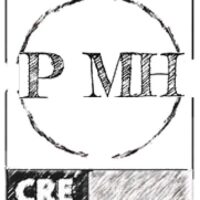
Anna Drożdżowicz (Inland Norway University of Applied Sciences) & J.P. Grodniewicz (Jagiellonian University)
La prochaine séance du Philosophy of Psychiatry Webinar sera l’occasion d’entendre Anna Drożdżowicz (Inland Norway University of Applied Sciences) et J.P. Grodniewicz (Jagiellonian University) pour une conférence intitulée « Epistemic Injustice in Psychotherapy ».
Résumé:
Psychotherapy is a form of psychological service that involves a collaborative process based on the relationship between a psychotherapist and a client/patient. Arguably, the main goal of psychotherapy is practical, i.e., alleviating mental suffering and/or enabling patients/clients to live a more fulfilling life. Nevertheless, in virtually all therapeutic traditions, the achievement of the practical goal is accompanied or even mediated by the achievement of auxiliary epistemic goals. We will focus on what we take to be the primary epistemic goal of psychotherapy, i.e., the acquisition or deepening of one’s self-understanding, characterized as grasping coherence-making relations between constituents of a body of information about oneself. Crucially, the epistemic interdependence between psychotherapists and clients raises important questions concerning epistemic authority and power, as well as epistemic injustice, i.e., a kind of injustice that arises when one’s capacity as an epistemic subject is wrongfully denied. Our goal in this talk is to characterize, categorize, and discuss how epistemic injustice can be perpetrated in psychotherapy. To this end, we will provide examples that illustrate ways in which three forms of epistemic injustice (testimonial, hermeneutical, and contributory) can arise in psychotherapeutic encounters. We will explain how these forms of epistemic injustice threaten one’s ability to deepen self-understanding through psychotherapy. We will close by briefly discussing some ways to mitigate the risk of epistemic injustice in psychotherapy.
La conférence sera donnée en anglais. La participation au webinaire est gratuite, mais l’inscription est obligatoire: site web.
Organisé par Anne-Marie Gagné-Julien et Sarah Arnaud, pour le Groupe de recherche en philosophie de la psychiatrie.



